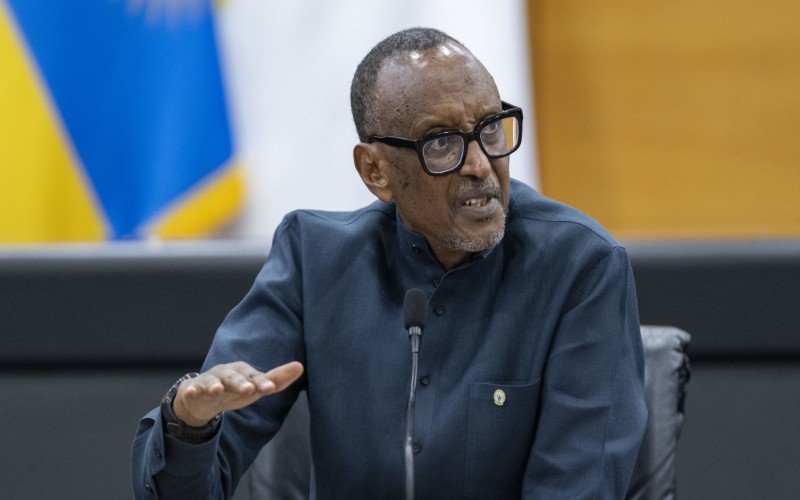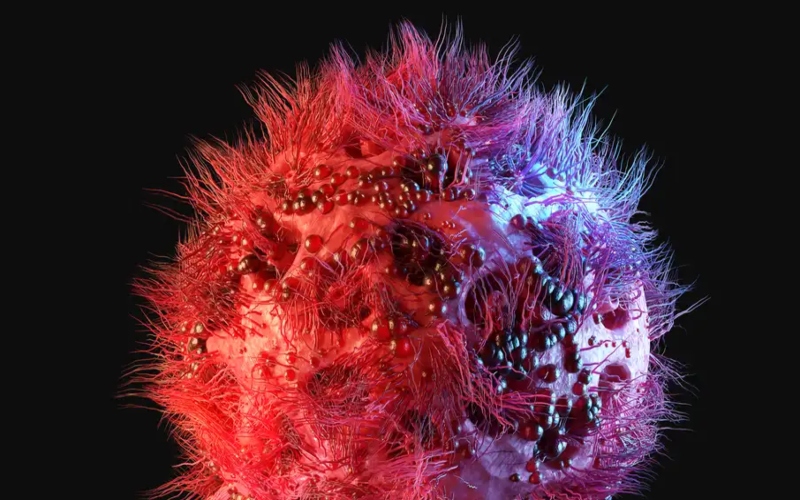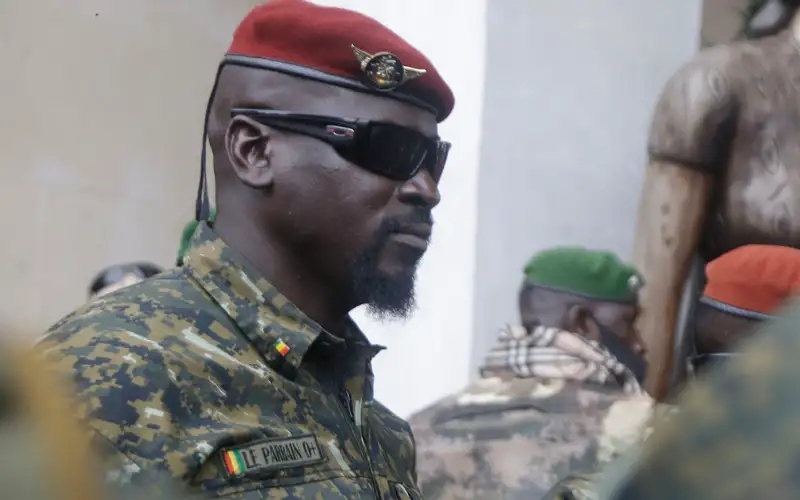Audit reveals massive misuse of funds at KEMSA
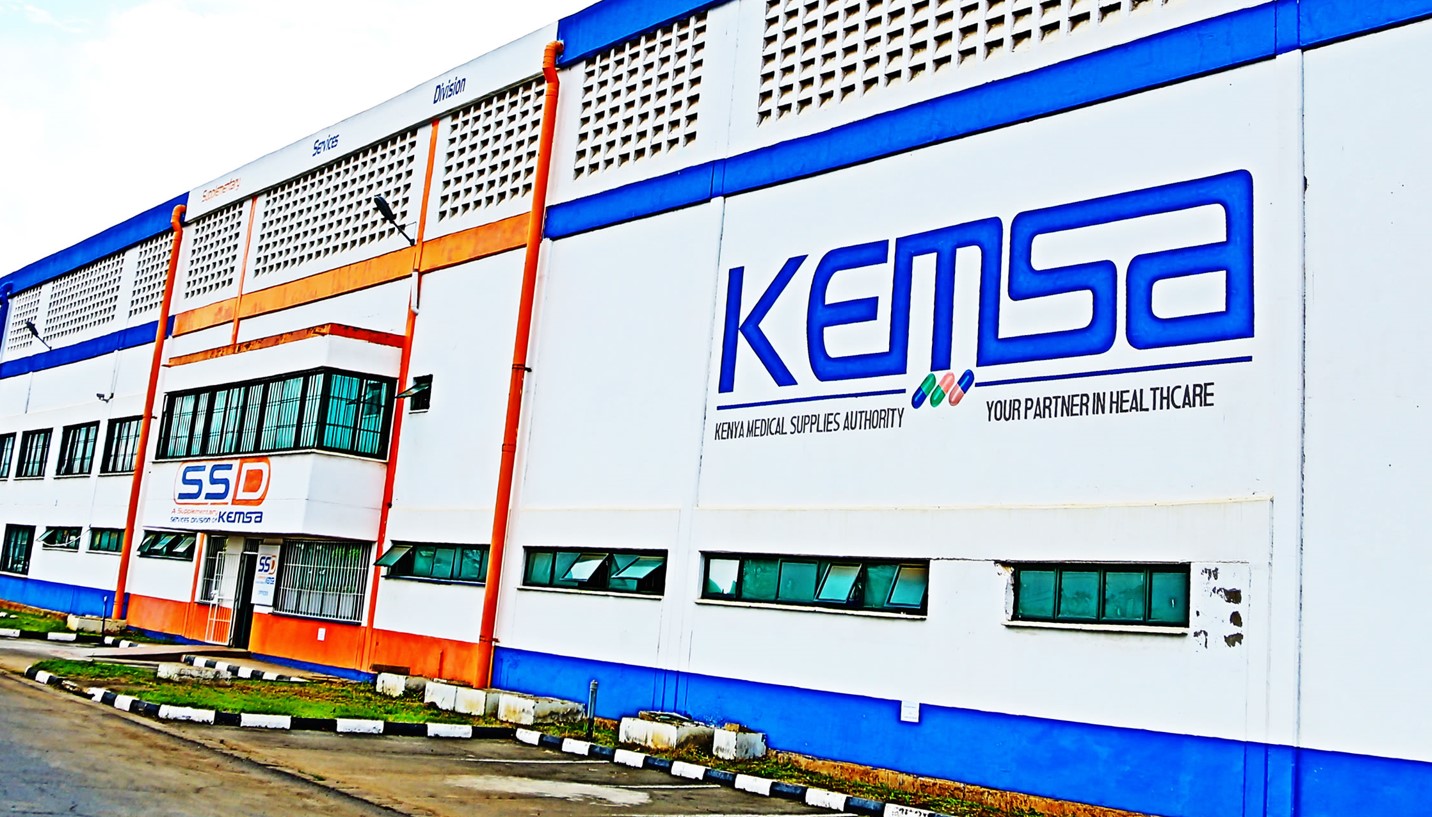
The Auditor General's report casts doubt on whether the reforms introduced by President William Ruto's administration have achieved their intended impact.
More To Read
- Ruto targets faster healthcare access with KEMSA direct medicine deliveries to hospitals
- Senate flags 24 State agencies still performing county functions
- Ministry of Health announces measures to reduce maternal, newborn deaths
- Ruto orders KEMSA reforms to end drug shortages in public hospitals
- MPs fault procurement authority for weak laws on COVID-19 tenders
- MCAs raise alarm over Isiolo Hospital services despite Sh27 million KEMSA delivery
On June 27, 2022, during a health forum organised by the Kenya Kwanza Alliance at the Catholic University of East Africa in Nairobi, President William Ruto vowed to tackle the ongoing scandals and monopoly at the Kenya Medical Supplies Authority (KEMSA), an institution marred by corruption.
Ruto, who was then serving as the country's deputy president, pledged reforms at KEMSA among his campaign pledges.
He stated, "We must sort out the health commodity supply chain. I don't know about the wisdom of having a monopoly called KEMSA. Some people must persuade us that there is logic to that."
Despite the promise, the Kenya Medical Supplies Authority (KEMSA) has continued to be subjected to immense scrutiny for scandal after scandal.
The authority is facing renewed controversy following a damning government audit that reveals possible financial mismanagement and the distribution of defective medical supplies.
Auditor General Nancy Gathungu's report, which was recently tabled in Parliament, reveals a troubling pattern of mismanagement and corruption at KEMSA.
One of the most shocking findings is that the authority allegedly donated medical supplies worth Sh572 million to non-existent health facilities.
It was alleged that insiders reportedly created 275 fake health facilities in the system and claimed to have sent supplies to them.
Additionally, health products worth Sh56 million were misallocated to private, faith-based, and NGO hospitals, with the bills incorrectly charged to the government and various county governments.
Supplies worth Sh1.1 million were billed to the Ministry of Health, raising questions about why taxpayers should bear the cost of supplies intended for private entities.
The report also uncovered that health products worth Sh867 million were distributed to 1,651 private health facilities, yet there was no proof that these supplies were given for free.
Furthermore, the audit highlighted the misallocation of cancer drugs sourced from a 2021 Memorandum of Understanding with a donor. The donor provided Sh13 billion worth of cancer drugs, with Sh10 billion allocated for five hospitals.
However, drugs worth Sh8.9 billion were given to an unnamed private hospital, while public hospitals received only Sh1.9 billion.
Other Topics To Read
"There was no justification for issuing 82 per cent of cancer drugs to one private hospital despite there being a national cancer treatment centre at KNH, which was earmarked to receive these drugs," Gathungu said in the report.
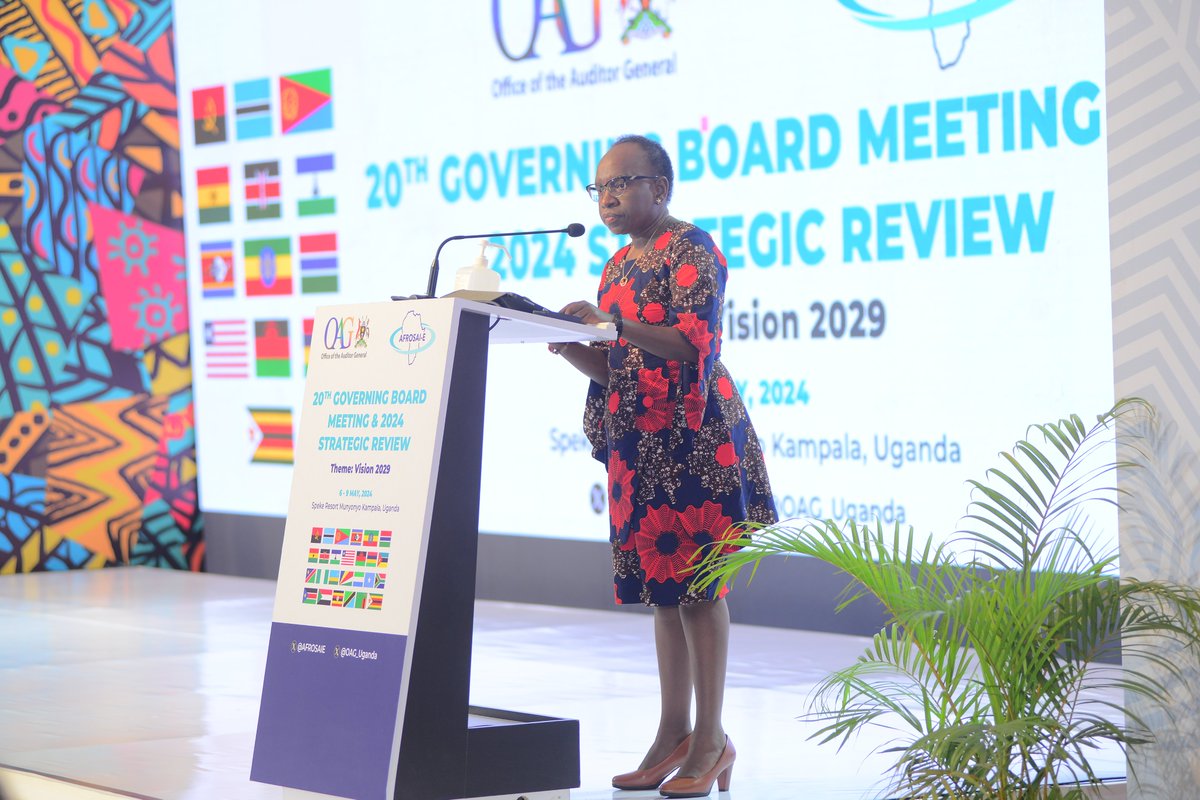 Auditor General Nancy Gathungu addresses journalists during the official opening of the African Organization of Supreme Audit Institutions (AFROSAI-E) Governing Board meeting in Kampala in May 2024. (Photo: Office of the Auditor General)
Auditor General Nancy Gathungu addresses journalists during the official opening of the African Organization of Supreme Audit Institutions (AFROSAI-E) Governing Board meeting in Kampala in May 2024. (Photo: Office of the Auditor General)Auditor General Nancy Gathungu addresses journalists during the official opening of the African Organization of Supreme Audit Institutions (AFROSAI-E) Governing Board meeting in Kampala in May 2024. (Photo: Office of the Auditor General)
She also questioned whether the drugs provided to the private hospital were dispensed for free and how patients were selected.
Out of 1,443 patients, 90 per cent were from a private hospital, while only 154 were from four public hospitals.
"In the circumstances, the value for money on cancer drugs totalling Sh8.9 billion issued to a private hospital could not be confirmed," Gathungu added.
Significant financial irregularities were also highlighted in the audit.
KEMSA was reported to have lost Sh756 million in the reviewed year, with an additional loss of Sh168 million due to a failed procurement effort for insecticide-treated nets, which were moved to another platform, wambo.org.
The authority distributed non-compliant health products, including ARVs with a shelf life of only 21 per cent, contrary to the minimum requirement of 75 per cent.
Procurement practices at KMESA were also scrutinised, with the report detailing issues such as the extension of contracts without competitive bidding and irregular direct procurement methods.
Contracts worth Sh14 billion lacked transparency, and there was no evidence of fair pricing for supplies worth Sh3.5 billion.
The audit also flagged purchases of Sh13.9 billion made outside the e-procurement system, leading to an over-procurement of the same amount.
Irregularities in the handling of tenders and contracts were noted, including a Sh47 million tender for blood bags that did not meet technical specifications.
Donations of Sh177 million to 74 health facilities were misreported as advertising costs, and Universal Health Coverage (UHC) supplies worth Sh856 million were unaccounted for, with funds mingled in operational accounts, exposing them to potential misuse.
Despite receiving Sh300 million from the Health Ministry for reforms, KEMSA has not fully implemented the proposed changes, with the money remaining unutilised as of June 30, 2023.
The recent developments at KEMSA cast doubt on whether the reforms introduced by President William Ruto's administration have achieved their intended impact.
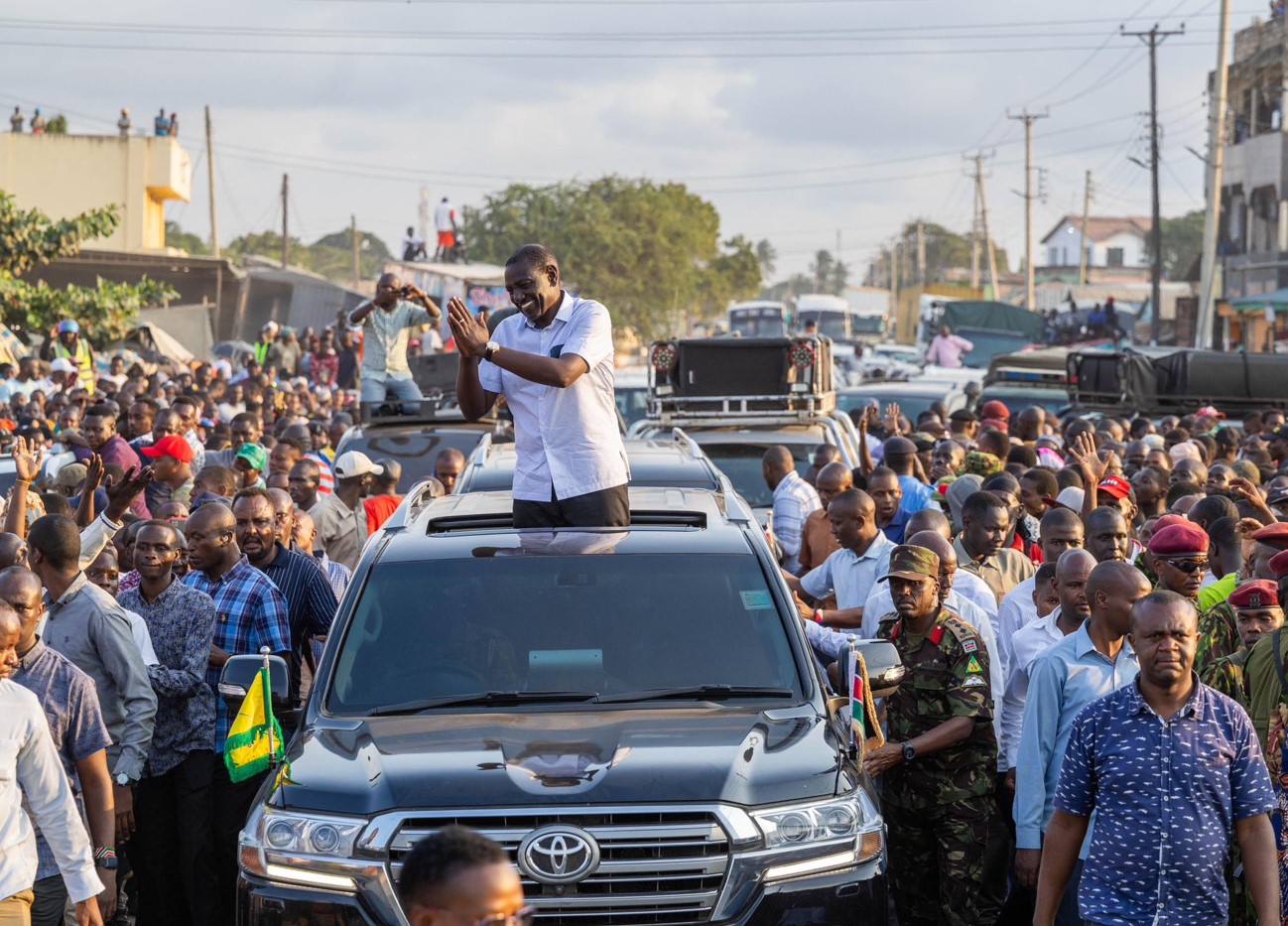 President William Ruto addresses a road side rally in Likoni, Mombasa on Saturday, July 27, 2024. (Photo" PCS)
President William Ruto addresses a road side rally in Likoni, Mombasa on Saturday, July 27, 2024. (Photo" PCS)
Top Stories Today
